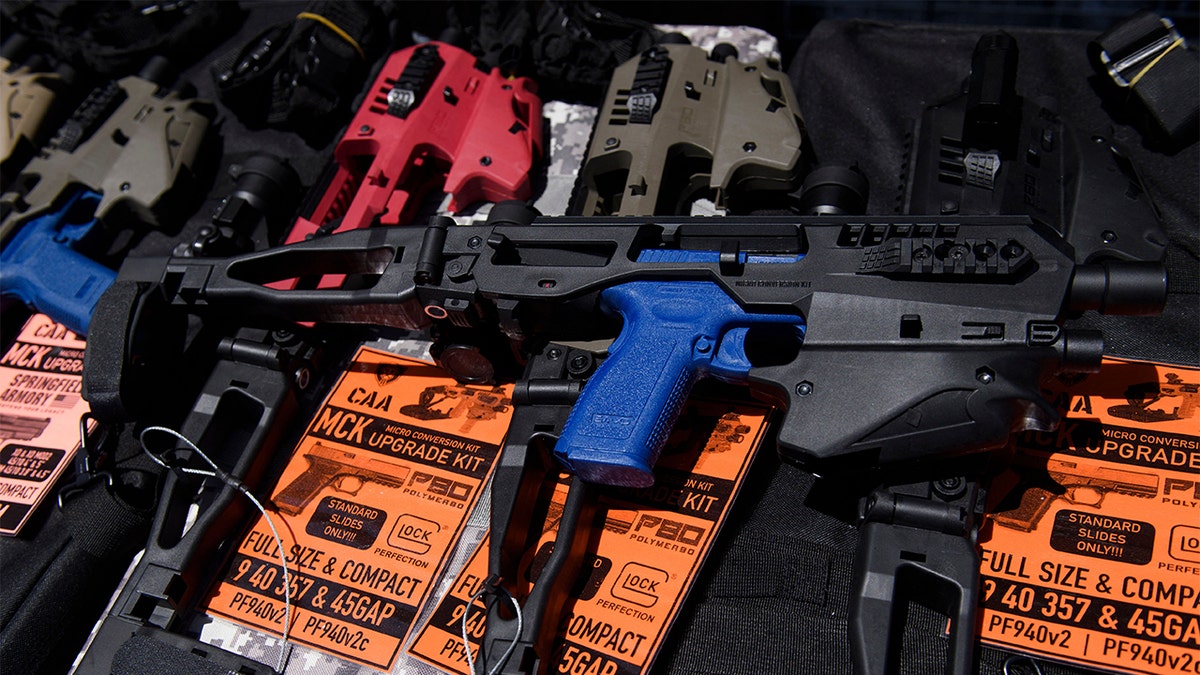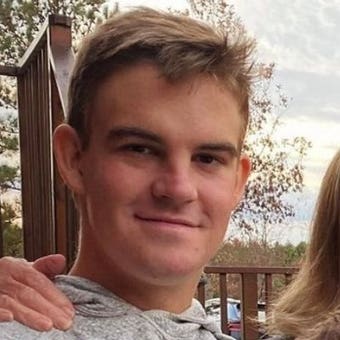Biden administration to focus on gun violence as crime spikes in major cities
Fox News contributors Leslie Marshall and Jason Chaffetz debate how to solve the problem on 'Fox News @ Night'
Nearly the entire Senate Republican caucus signed on to a letter Thursday demanding a withdrawal of a proposed ATF rule that would regulate some pistol-stabilizing braces.
The rule, which was proposed on June 7, would reclassify many pistols used with stabilizing braces as short-barreled rifles, which require a federal license to own under the National Firearms Act.
"The way the proposed rule is written makes clear that ATF intends to bring the most common uses of the most widely possessed stabilizing braces within the purview of the NFA," 48 Republican Senators wrote to Attorney General Merrick Garland and ATF acting director Marvin Richardson in the letter, which was originally obtained by The Reload.
"Doing so would turn millions of law-abiding Americans into criminals overnight, and would constitute the largest executive branch-imposed gun registration and confiscation scheme in American history."
Attorney General Merrick Garland unveiled the rule alongside a host of other gun control measures that the Biden administration is pushing forward following a spate of mass shootings to start off 2021.
"We issued a proposed rule to clarify that pistols equipped with certain stabilizing braces are subject to the same statutory restrictions as easily concealable, short-barreled rifles," Garland said at the White House on Wednesday.

Pistol-stabilizing braces are designed to extend from the rear of a handgun and attach to a shooter's forearm. (Photo by Patrick T. FALLON / AFP) (Photo by PATRICK T. FALLON/AFP via Getty Images) (Getty Images)
Stabilizing braces extend backward from the rear portion of a handgun and attach to a shooter's firearm, thereby making larger short-stocked guns easier to handle.
As the Congressional Research Service notes, the first pistol-stabilizing braces were "designed to assist a veteran and service-connected amputee with firing an ARtype handgun singlehandedly."
Rep. Richard Hudson of North Carolina led 140 House Republicans in calling for the rule to be rescinded last week, arguing that it "jeopardizes the rights of law-abiding gun owners and disabled combat veterans."
"Should this guidance go into effect, a disabled combat veteran who has chosen the best stabilizing brace for their disability is now a felon unless they turn in or destroy the firearm, destroy the brace, or pay a $200 tax," Rep. Hudson wrote in a letter to Garland and Richardson on June 14.
DOJ ACKNOWLEDGES ‘STAGGERING’ RISE IN VIOLENT CRIME AS IT ROLLS OUT EFFORT TARGETING GUN TRAFFICKING
According to the ATF, the proposed rule would not affect stabilizing braces that are "designed to conform to the arm," but just devices that are designed to be fired from the shoulder.
"When a purported ‘stabilizing brace’ and an attached weapon's objective design features indicate that the firearm is actually designed and intended to be fired from the shoulder, such weapon may fall within the scope of the NFA, requiring registration and payment of tax," the proposed rule reads.
"Accordingly, ATF must evaluate on a case-by-case basis whether a particular firearm configured with a 'stabilizing brace' bears the objective features of a firearm designed and intended to be fired from the shoulder and is thus subject to the NFA."
The Republican Senators argue though that the ATF's criteria is "vague, confusing, and largely subjective."
"The proposed rule says nothing about how any individual gun owner, gun shop, or manufacturer will go about determining whether an individual brace-equipped pistol is an SBR under the proposed rule's criteria," the Senators wrote.
"Does ATF expect individuals to apply the proposed rule's vague and confusing criteria on their own, knowing that a good-faith error could land them in prison?"
CLICK HERE TO GET THE FOX NEWS APP
The proposed rule will be open to the public for comment until Sept. 8 and has already received more than 100,000 such comments.














































